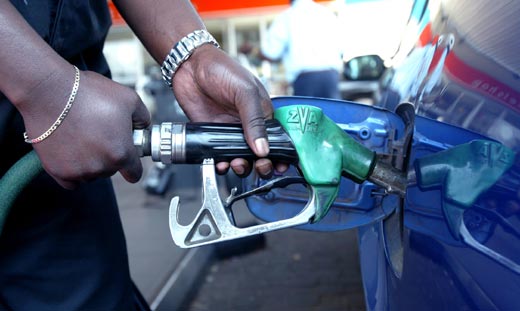By Thabani Zwelibanzi
The Reserve Bank of Zimbabwe (RBZ) on Monday evening announced it was ending the US$1: RTGS$1 exchange rate for fuel importers, a move that has seen fuel prices rising up by almost 50%.
Fuel companies have been getting foreign currency at concessionary rates, but with effect from Tuesday, the central bank said oil marketing companies will have to look for hard currency on the interbank rate, which was introduced in February.
“… the procurement of fuel by the oil marketing companies (OMCs) shall be done through the interbank foreign exchange market,” the central bank said in a statement. “There shall only be one foreign exchange rate to be used for the importation of all goods and service. This means that the 1:1 exchange rate that was used by OMCs for the procurement of fuel shall be discontinued with immediate effect.”
The RBZ said this was necessary to promote the efficient use of foreign currency and to minimise arbitrage opportunities.
There have been allegations that the Zimbabwean fuel sector is run by cartels that were profiteering from the cheap foreign currency they received from the central bank.
To curb this, RBZ is directing customers to the interbank foreign exchange market, which has so far been underwhelming, with reports indicating that only $85 million had gone through the system since introduction.
By Tuesday morning, the interbank rate had shot up from the RTGS$$3.48 on Monday to RTGS$4.70 to the US dollar, but it remained far behind the parallel market rate, which was going for up to RTGS$6.20 to the greenback.
Following the central bank’s move, the price of petrol shot up from RTGS$3.34 to RTGS$4.97 per litre, while diesel will now cost $4.89 per litre, the Zimbabwe Regulatory Authority (ZERA) said in a statement.
The price of fuel could have been much higher, but the government responded by cutting taxes on fuel, which they increased in January this year. This pushed up the price of fuel up triggering massive protests.
Probably to avoid protests, the government responded by cutting Zupco fares by 50%.
The latest round of fuel increases is set to push the price of basics even higher, with the Zimbabwe Statistical Agency reporting that inflation was at 75.86% in April.
Bizarrely, ZERA had earlier on Tuesday advised that the price of fuel had not gone up, despite the RBZ statement.
ZERA at the time said it was sending the police officers and its staff around service stations, warning that anyone increasing the price of fuel or hoarding the commodity would “face the full wrath of the law”.

